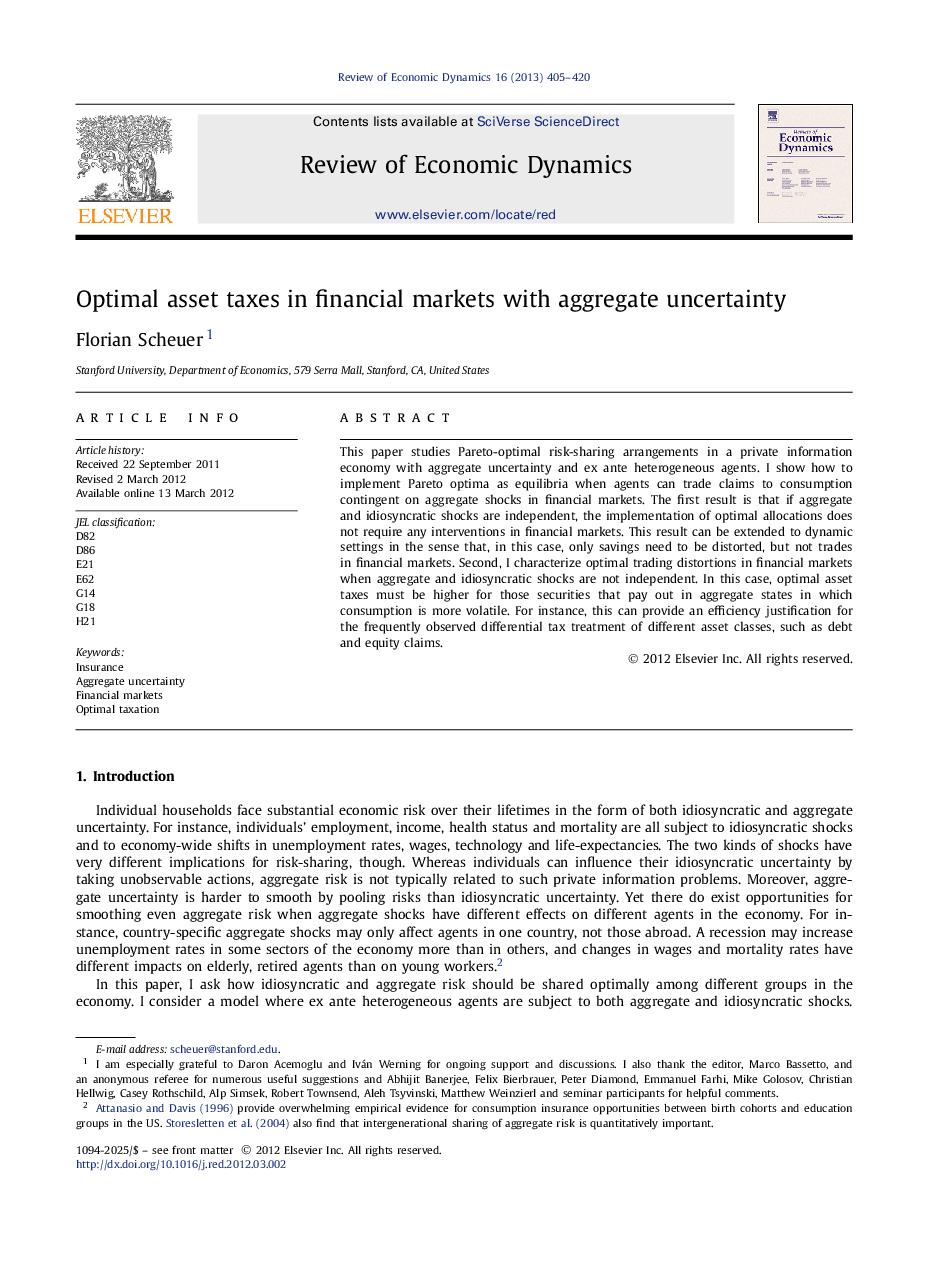| Article ID | Journal | Published Year | Pages | File Type |
|---|---|---|---|---|
| 986677 | Review of Economic Dynamics | 2013 | 16 Pages |
This paper studies Pareto-optimal risk-sharing arrangements in a private information economy with aggregate uncertainty and ex ante heterogeneous agents. I show how to implement Pareto optima as equilibria when agents can trade claims to consumption contingent on aggregate shocks in financial markets. The first result is that if aggregate and idiosyncratic shocks are independent, the implementation of optimal allocations does not require any interventions in financial markets. This result can be extended to dynamic settings in the sense that, in this case, only savings need to be distorted, but not trades in financial markets. Second, I characterize optimal trading distortions in financial markets when aggregate and idiosyncratic shocks are not independent. In this case, optimal asset taxes must be higher for those securities that pay out in aggregate states in which consumption is more volatile. For instance, this can provide an efficiency justification for the frequently observed differential tax treatment of different asset classes, such as debt and equity claims.
► I consider efficient risk sharing in a moral hazard model with aggregate shocks and heterogeneous agents. ► Optima are implemented as equilibria with financial markets where state contingent claims are traded. ► If aggregate and idiosyncratic shocks are independent, no tax interventions in financial markets are needed. ► This extends to dynamic settings: only savings need to be distorted, but not trades in financial markets. ► I characterize optimal transaction taxes when aggregate and idiosyncratic shocks correlate.
